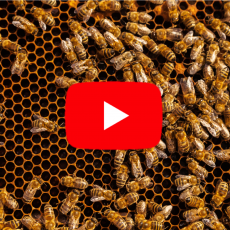Today we’re talking periods and plastic. Before you decide this doesn’t concern you as someone who doesn’t menstruate, stick around. This is a plastic pollution issue that concerns all of us. In the United States alone, approximately 12 billion pads and 7 billion tampons are discarded each year. Most of this ends up in landfill where it can take centuries to breakdown. Some ends up in our waterways and then washed up on our beaches – sanitary products are the fifth most common item found on Europe’s beaches, more widespread than single-use coffee cups, cutlery or straws.
Read moreAuthor: Meghan
The Carbon Footprint of Whisky

Thanks to all of you who have downloaded our App and sent through support and feedback! It really makes us proud. Today, we’re peeking behind the curtain to explore how we bring you the carbon footprint of products in our App.
Read moreEthical Shopping

We recently had the pleasure of chatting with Lindsay Karlsen, founder of VALYOS, an eco-friendly online platform for ethical shopping. The amount of research required to find sustainable products and brands is not always possible with life’s busy schedule. This is where VALYOS can help you connect with sustainable brands and second-hand sellers who share your same sustainability values.
Read moreswrm Fairy Tales of Sustainability

Today, from the Hive, we bring you classic tales of intrigue, suspense, and true love of sustainability! Once upon a time, in a magical land…
Read moreCompost and the City

Hey swrmers! Welcome back to the Hive. A few weeks ago, we spoke with William Klimpert, Common Ground Compost’s resident data and waste management expert about composting in New York City. But there’ve been some huge changes in the world since then. So, today, we’re here with Meredith Danberg-Ficarelli, the Director of Common Ground Compost, to talk about those changes and what the future of composting looks like in the Big Apple.
Read moreSustainability and Justice

In 2015, the Sustainable Development, or Global Goals, were adopted by the 193 United Nations member states with the landmark 2030 Agenda. These goals are a universal call to action by all countries – rich, poor, and middle-income – to end poverty, protect the planet, and ensure that every human being enjoys peace and prosperity by 2030.
The 2030 Agenda and the SDGs are ultimately about what makes us human, and are a roadmap to building a sustainable future in the world with care and compassion for each other, and care and compassion for the Earth.
Read moreSustainable Seafood

Global seafood consumption has more than doubled in the last 50 years, with demand reaching a staggering 143 million metric tonnes. And with an anticipated 10 billion people expected to inhabit the planet by 2050, the demand for animal protein will increase by 52 percent, making sustainable and healthy approaches to feeding the world more critical than ever before.
So today, we’re going to talk more about one of the most nutritious and sustainable proteins available on the planet — if sourced responsibly.
Read moreMethane and Global Warming

When we discuss climate change, most of our focus is on carbon dioxide or CO2 emissions. But today, we’re talking about methane, a greenhouse gas 80 times more potent than carbon dioxide. So, why don’t we hear more about it?
Read moreThe CO2 of H2O

Welcome to the Hive from home, QuarantineTV Edition! Today, we’re talking about water. Specifically, what type of emissions are produced bringing this magical elixir into and out of our lives. As our population increases, we need to learn how to adapt to sharing our limited freshwater resources. Water is essential to life on Earth, and providing access that is more sustainable just makes sense.
Read moreMethane & Global Warming

When we discuss climate change, most of our focus is on carbon dioxide or CO2 emissions. But why don’t we talk about other heat trapping gases such as Methane (CH4), Carbon Monoxide (CO) and Nitrous Oxide (N2O)? The short answer is there is more CO2 in the atmosphere than any other greenhouse gas at around 80% of total emissions. But did you know, methane is over 80 times more potent than CO2?
Read more
